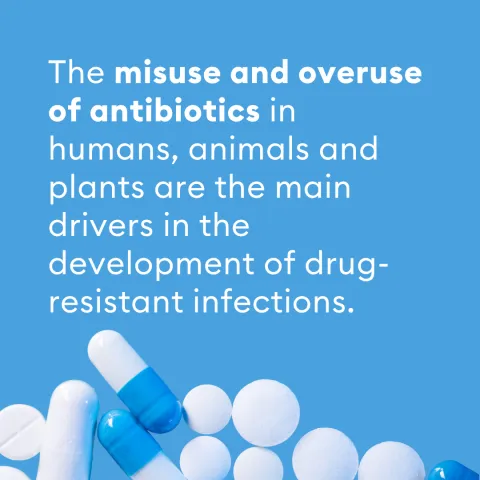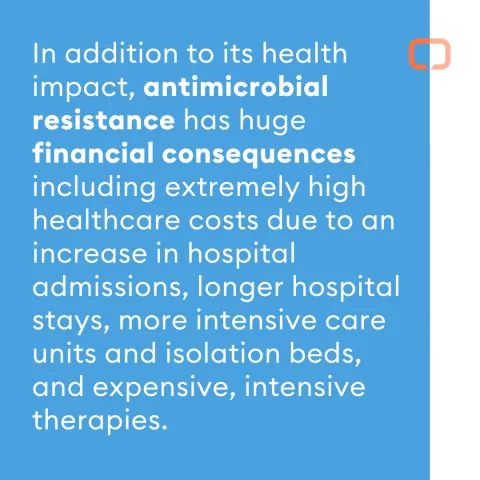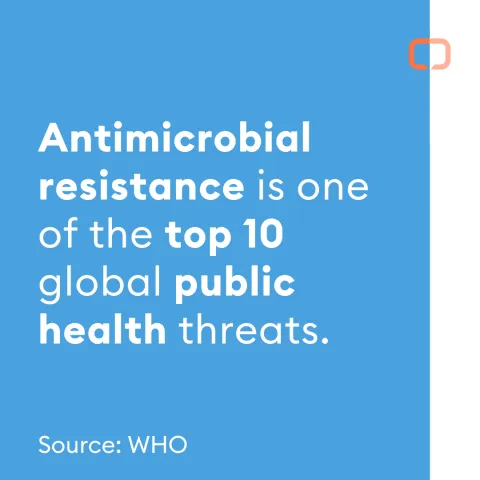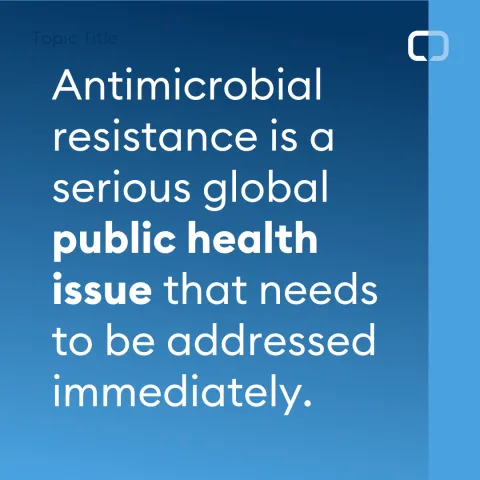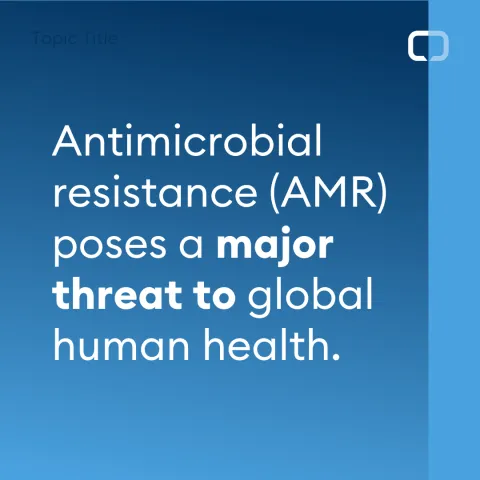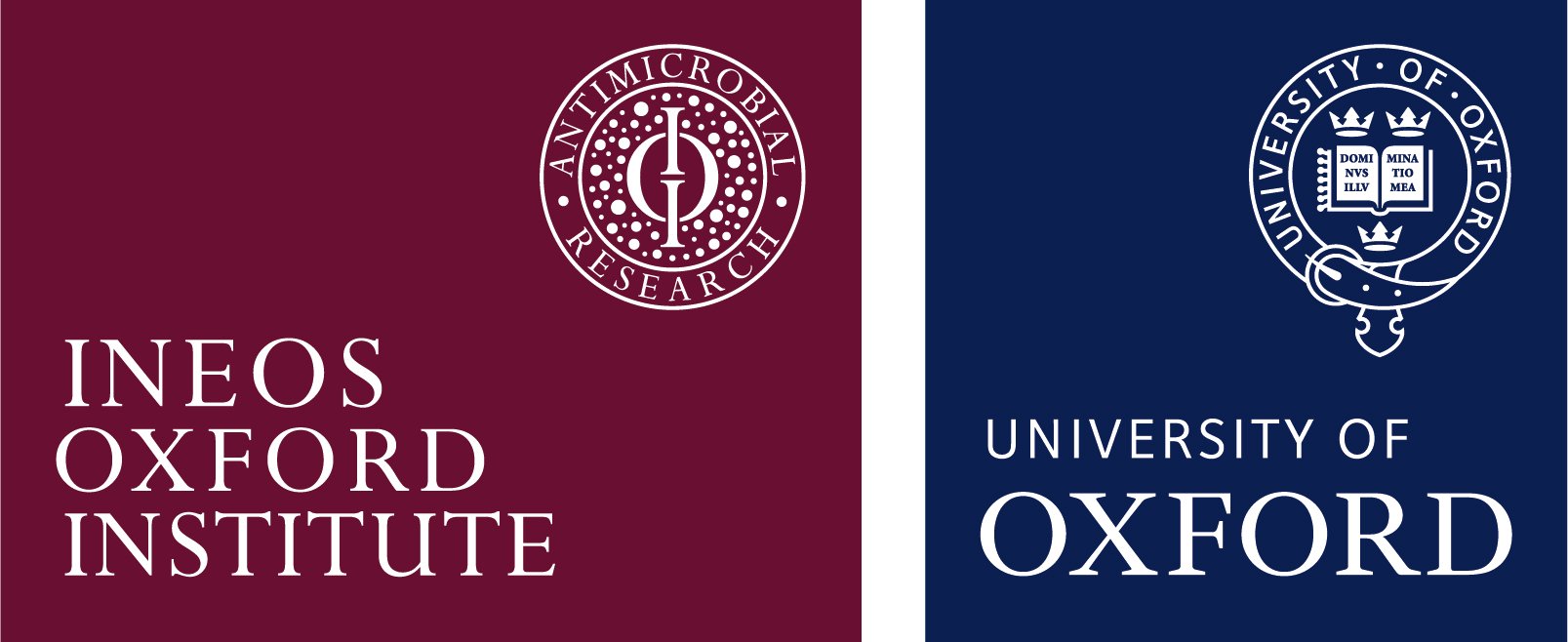Raising awareness about antimicrobial resistance
Antimicrobial resistance (AMR) is a complex issue that undermines medical treatments across many areas of healthcare, including cancer care.
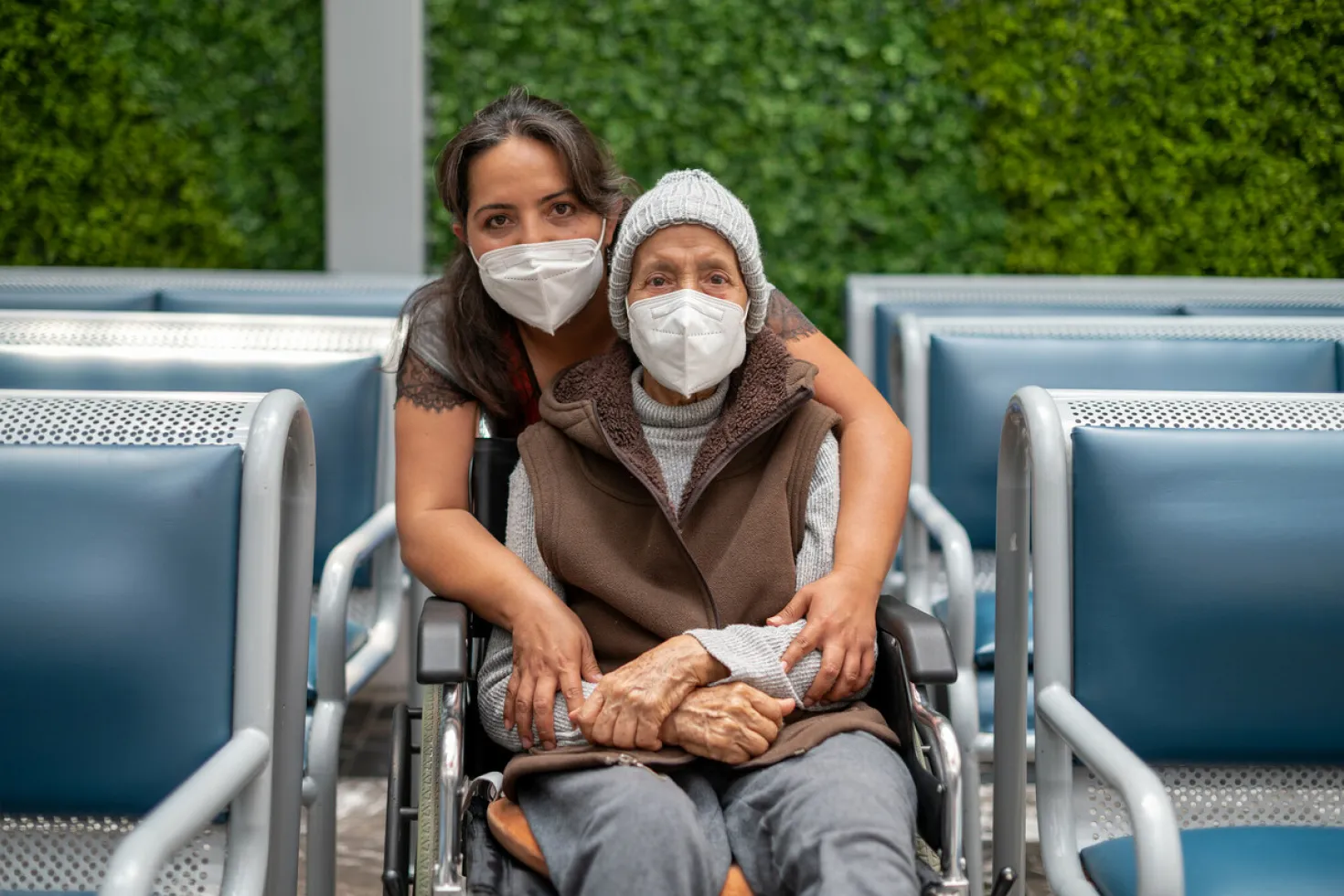
As an increasing number of microbes or pathogens, including bacteria, viruses, fungi, and parasites, are developing a resistance to the drugs designed to kill them is making it increasingly difficult for doctors to effectively treat various diseases where patients are vulnerable to infection.
The faces behind the figures
Those with a personal experience of cancer and drug-resistant infections – people living with cancer, their family or friends – are key to addressing drug resistance. By sharing their stories, they lend a human face to the problem, driving home the impact of drug-resistant infections, and help spur global action.
The stories

Every step of my cancer treatment depended on antibiotics being available.

I am an oncologist working with cancer patients with antimicrobial resistance.

I was a childhood cancer survivor with a drug-resistant infection.

I am the UK Special Envoy on Antimicrobial Resistance. My former husband had leukemia and I saw the importance of having antimicrobials that work.

I was diagnosed with mantle cell lymphoma and caught an infection caused by a strain of bacteria resistant to multiple antibiotics.

My mother had a drug-resistant infection during her cancer treatment.

I am the Nurse Manager at Tata Memorial Hospital stressing the importance of pre-chemo counseling to reduce the risk of infections

My daughter was diagnosed with acute lymphoblastic leukemia (ALL) and who suffered from a weakened immune system.

My children lost their grandmother to cancer followed by AMR.

I am a paediatric oncologist working with children with cancer and drug-resistant infections.

I am the secretary general of the Norwegian Cancer Society, working on antimicrobial resistance and cancer.

I am the Global Development Officer for Hospital Sant Joan de Déu in Barcelona and Deputy Director of the Yeolyan National Hematology-Oncology Center of Armenia.
Preserve to protect
This is a call to preserve life-saving antibiotics and other antimicrobials through prudent use and protect public health by preventing the spread of resistant infections. There is a need for a collective effort from healthcare professionals, policymakers, and the public to use antimicrobials appropriately, adhere to infection prevention and control practices, and invest in research and development of new treatments. Responsible stewardship today ensures effective medical treatments for future generations, combating the growing threat of AMR and securing a healthier tomorrow.
Read the brief on antimicrobial resistance and cancer
UN high-level meeting on AMR
The second UN high-level meeting on AMR took place on 26 September 2024, where the political declaration on addressing AMR was adopted by Members States. At this meeting, Member States committed to a set of actions to mitigate AMR across all sectors, using a One Health approach that recognises the interconnectedness between human, animal, agriculture and environmental health. There are several commitments outlined under action on human health to effectively address AMR including focus on awareness raising, ensuring access to appropriate therapies, and infection prevention and control (IPC) etc. Progress in these areas will have a positive impact on cancer care outcomes. This is an opportunity for the cancer and infectious diseases communities to come together and mobilise commitment among UN member states, civil society, and the private sector to support a set of actions that slow or mitigate the development and impact of AMR.
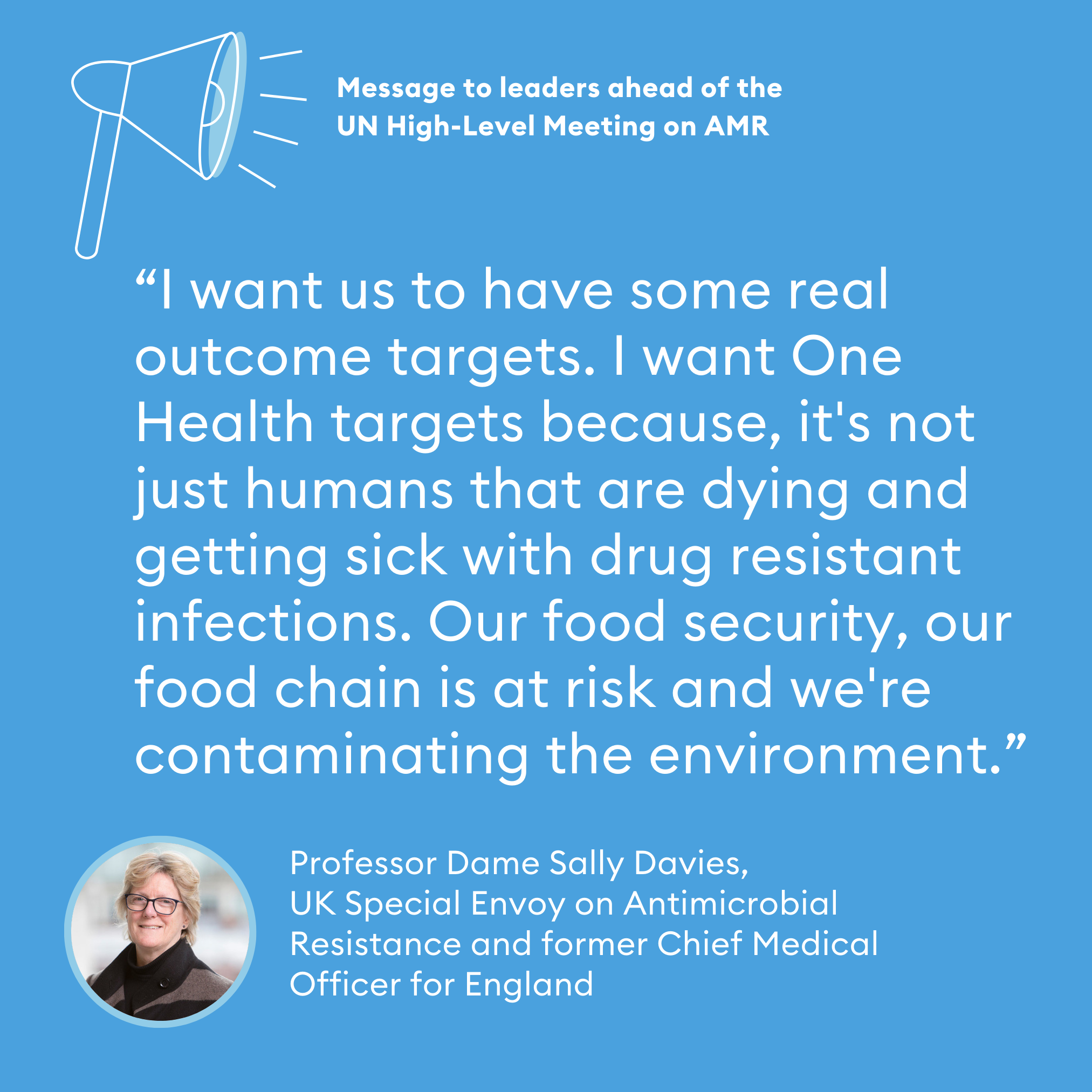
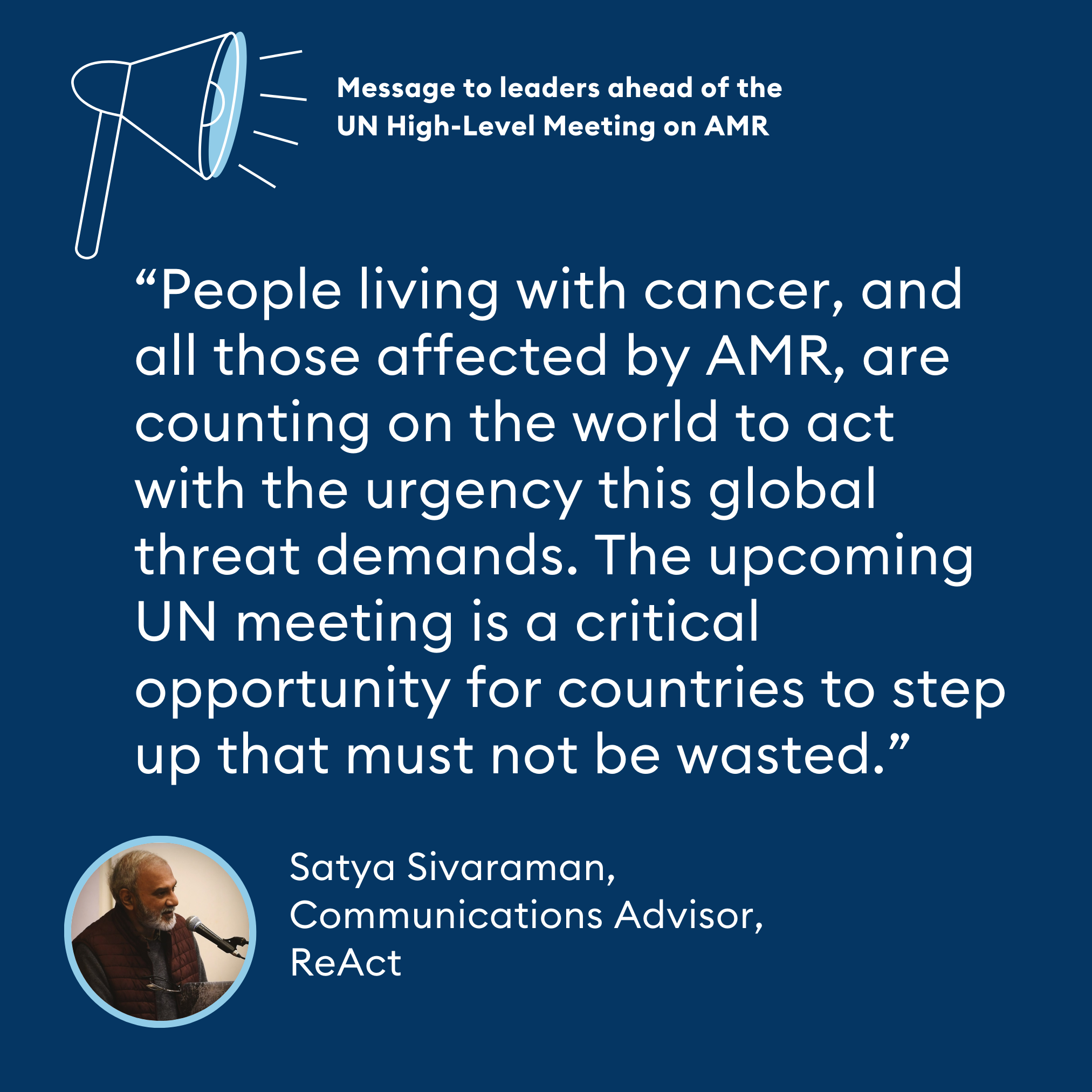
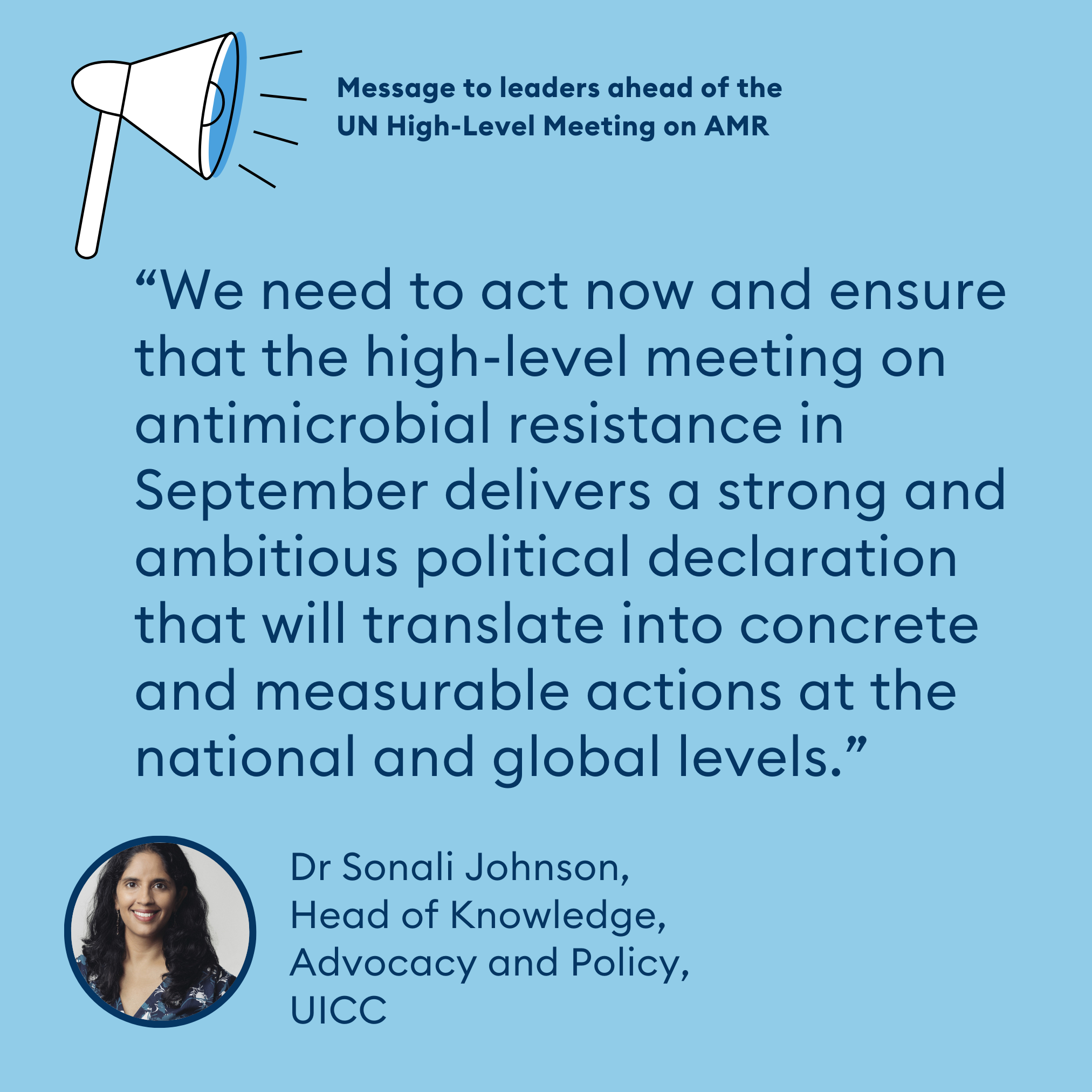
World AMR Awareness Week
Educate. Advocate. Act now.
The World AMR Awareness Week (WAAW) is a global awareness campaign to educate and inspire people to act on AMR. Led by the World Health Organization, it takes place every year from 18-24 November.
The 2024 theme is “Educate. Advocate. Act now.” To tackle AMR on a global scale, it is vital to educate all stakeholders on the scope of the problem, advocate for coordinated action and act across regions and sectors.
UICC supports the World AMR Awareness Week by drawing the attention of healthcare workers, policymakers, and the general public to the threat that antimicrobial resistance represents for people living with cancer.
Key resources
UICC recommends that its members raise awareness about the threat of antimicrobial resistance, particularly ahead of the UN high-level meeting on AMR, and during the World AMR Awareness Week, by relaying messages to the general public, healthcare practitioners and every stakeholder, decision makers and government.
Antimicrobial resistance communications toolkit
Download images, videos and texts for your social media platforms. Help us spread the word about the threat of AMR. Resources are available in English, French and Spanish.
Antimicrobial resistance is a serious global public health issue that needs to be addressed immediately. @uicc
The misuse and overuse of antibiotics in humans, animals and plants are the main drivers in the development of drug-resistant infections. @uicc
Antimicrobial resistance threatens many advances in modern medicine. It complicates the treatment of infections and negatively impacts many medical procedures and treatments, including surgeries, caesarean sections, and cancer treatment and care. @uicc
1. What is antimicrobial resistance?
-
Antimicrobial resistance happens when microorganisms (such as bacteria, fungi, viruses and parasites) develop the ability to continue to grow, even when they are exposed to antimicrobial medicines that are meant to kill them or limit their growth (such as antibiotics, antifungals, antivirals, antimalarials and anthelmintics). As a result, the medicines become ineffective and infections persist in the body, increasing the risk of spread to others.
2. What is the difference between antibiotic resistance and antimicrobial resistance
- While antimicrobial resistance refers to all microbes that resist treatments designed to destroy them, antibiotic resistance specifically deals with bacteria that are resistant to antibiotics.
3. Why is protecting children from tobacco industry interference important?
- Children and adolescents are particularly vulnerable to the influence of tobacco marketing. With the rise of social media and streaming platforms, the tobacco industry's targeted campaigns are increasingly reaching young people, putting their health at risk and perpetuating the cycle of addiction.
4. Why is antimicrobial resistance a threat to cancer patients?
-
People living with cancer are more susceptible to infections due to the lowering of immune defences, while surgery and treatments like bone marrow transplants, radiotherapy and chemotherapy put the immune system under immense pressure.
As many as 1 in 5 cancer patients undergoing treatment are hospitalised due to infection, and antibiotics are the main line of defence.[4] Pneumonia and sepsis (as a result of bacterial infection of the blood) are among the most frequent causes of admission to intensive care units for cancer patients. In fact, it is estimated that 8.5% of cancer deaths are due to severe sepsis.[5]
Antibiotics are a key and indispensable part of cancer treatment – many patients simply have to take them – and for their benefit it is important to better manage the use of these medicines and address this crisis.
5. How do I avoid antimicrobial resistance?
- Only use antibiotics when prescribed by a certified health professional.
- Never share or use leftover antibiotics.
- Prevent infections by regularly washing hands, preparing food hygienically, avoiding close contact with sick people, practising safer sex, and keeping vaccinations up to date.
6. What efforts are being made to combat tobacco use?
- Organisations like the Union for International Cancer Control (UICC) advocate for effective tobacco control measures, particularly in low- and middle-income countries where the majority of smokers reside. These efforts include raising awareness, implementing cost-effective interventions, and combating the tobacco industry's attempts to expand its market and influence policy.
7. What causes antimicrobial resistance?
- Overuse and misuse: Inappropriate use of antibiotics (e.g., unnecessary prescriptions, incomplete courses) accelerates resistance.
- Agricultural practices: Antibiotics used in agriculture can lead to resistance in animals and humans.
- Global travel and trade: Resistant strains can spread globally due to travel and trade.
- Lack of new drugs: Few new antimicrobial drugs are being developed, exacerbating the problem.
We would like to extend our gratitude to The Trinity Challenge and The Ineos Oxford Institute for antimicrobial research for their invaluable support.
Antimicrobial resistance
- The AMR Multi-Stakeholder Partnership Platform (FAO)
- Antimicrobial Resistance (CDC)
- Antimicrobial Resistance (WHO)
- The Global Action Plan (WHO)
- Advancing Research and Development (GARDP)
- The Lancet series on AMR (The Lancet)
Cancer and antimicrobial resistance
- The AMR and Cancer Consortium (AMR Fighter Coalition)
- Impacts of Antimicrobial Resistance on Cancer Care (CDC)
Latest news and blog articles about antimicrobial resistance
Why is addressing the bacterial AMR threat so crucial to cancer care patient outcomes?
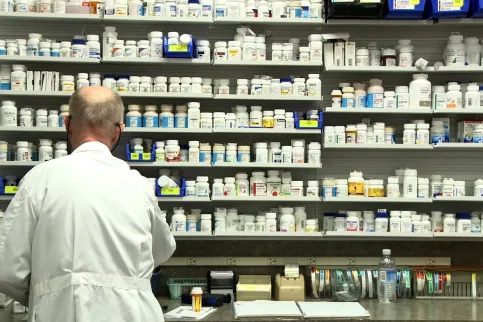
New UICC policy brief outlines urgent steps to address AMR in cancer care
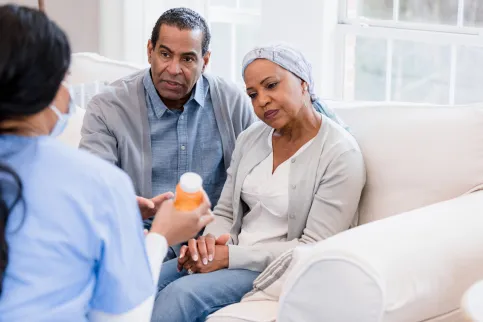
People with cancer face up to three times the risk of drug-resistant infections, new research warns
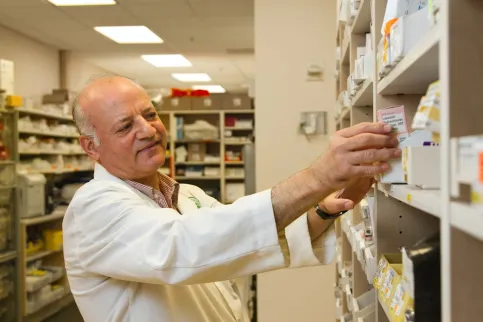
Confronting antimicrobial resistance: a growing threat to cancer treatment and public health
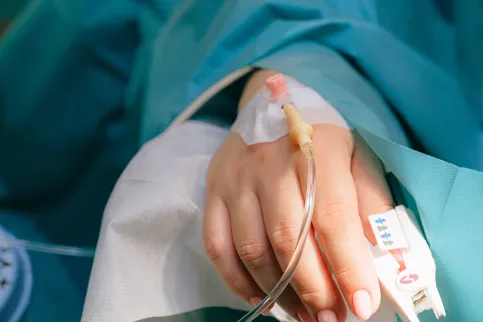
UICC underscores the impact of AMR on cancer treatment during World AMR Awareness Week
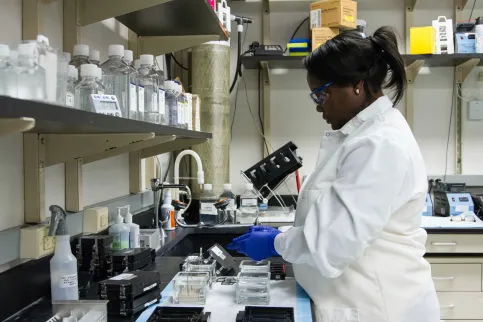
UICC welcomes UN declaration on antimicrobial resistance: a positive step for cancer care
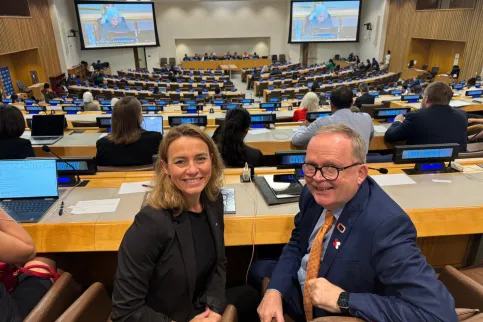

Antimicrobial resistance (AMR) is listed as a top global health threat along with climate change, which has now been shown to worsen the effects of AMR, and is particularly severe in low- and middle-income countries.
Antimicrobial resistance: a clear and present...

World AMR Awareness Week (WAAW) is celebrated from 18-24 November every year to improve awareness and understanding of antimicrobial resistance.
World AMR Awareness Week (WAAW)
Last update
Friday 31 October 2025